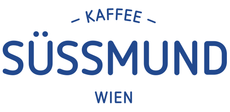Organic coffee
Demand for organic coffee beans is steadily increasing, as more and more consumers want to order organically grown coffee. That's why our coffee roastery has been certified organic since 2019. We'll explain what the organic seal stands for, how organic coffee differs from conventionally grown coffee, and why coffee can come from sustainable agriculture even without organic certification.
Availability (1)
Price
No products in this collection
Organic coffee from Süssmund Kaffee

Order organic coffee in our online shop since 2019

Organically grown coffee without organic certification
Frequently Asked Questions
What does the EU organic seal stand for
Who checks compliance with the regulations?
How does organic coffee differ from conventionally grown coffee?
Are non-organic certified coffees harmful to health?
